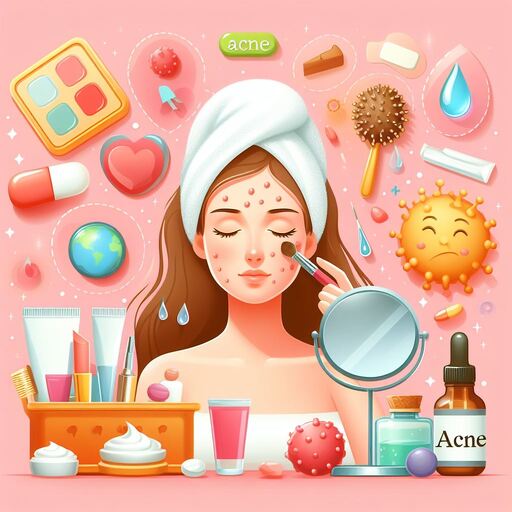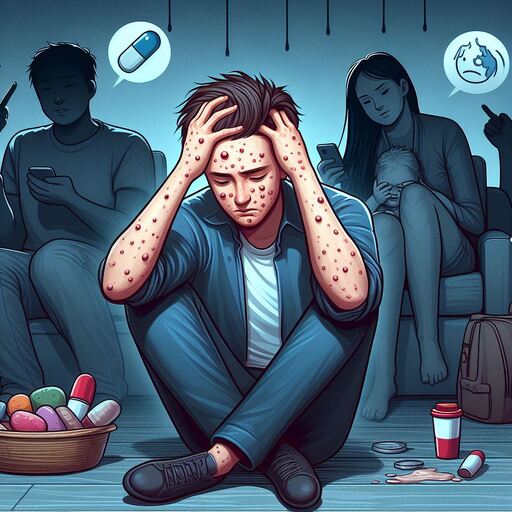The Psychological Impact of Acne
The Psychological Impact of Acne
Acne is a common skin condition that can have a significant impact on an individual’s psychological wellbeing. It can cause shame, low self-esteem, and social ostracism, particularly in teenagers who are more vulnerable to the effects of bullying and social pressure. In this article, we will discuss the psychological impact of acne and strategies for coping with it.
Psychological Impact:
1. Shame: Acne can be highly visible, and individuals may feel ashamed or embarrassed about their appearance. They may avoid looking at themselves in the mirror or wearing certain clothes that draw attention to their skin condition. This shame can have a negative impact on self-esteem and confidence.
2. Low Self-Esteem: Acne can also lead to feelings of low self-esteem, as individuals may feel that they are not attractive enough or do not meet society’s beauty standards. This can affect their performance in school, work, and social interactions.
3. Social Ostracism: Individuals with acne may experience bullying or social ostracism from peers, which can exacerbate feelings of shame and low self-esteem. They may feel excluded from social activities and struggle to make friends.
The Psychological Impact of Acne
Coping Strategies:
1. Seek Support: It is essential to seek support from friends, family, or a mental health professional. Talking about your feelings and experiences can help you process them more effectively, and it can provide a sense of connection to others who may be experiencing similar challenges.
2. Practice Self-Care: Practicing self-care activities such as exercise, meditation, or hobbies can help boost your mood and reduce stress levels. It can also improve physical health, which may contribute to clearer skin.
3. Develop Coping Skills: Developing coping skills such as positive thinking, mindfulness, or deep breathing exercises can help manage stress and anxiety associated with acne. It can also improve overall mental wellbeing.
4. Consider Professional Help: If the psychological impact of acne is severe, it may be beneficial to seek professional help from a dermatologist, psychologist, or therapist. They can provide guidance on treatment options and offer support for coping with the emotional aspects of acne.
5. Educate Yourself: Educating yourself about acne and its impact on mental health can help reduce feelings of shame and low self-esteem. Learning about the condition’s causes, treatments, and potential complications can empower individuals to take control of their health and wellbeing.
The Psychological Impact of Acne
Conclusion:
The psychological impact of acne can be significant, leading to feelings of shame, low self-esteem, and social ostracism. However, there are strategies that can help individuals cope with these challenges, including seeking support, practicing self-care, developing coping skills, considering professional help, and educating oneself about the condition. With the right approach, individuals can manage the emotional impact of acne and improve their overall wellbeing.
The Psychological Impact of Acne

